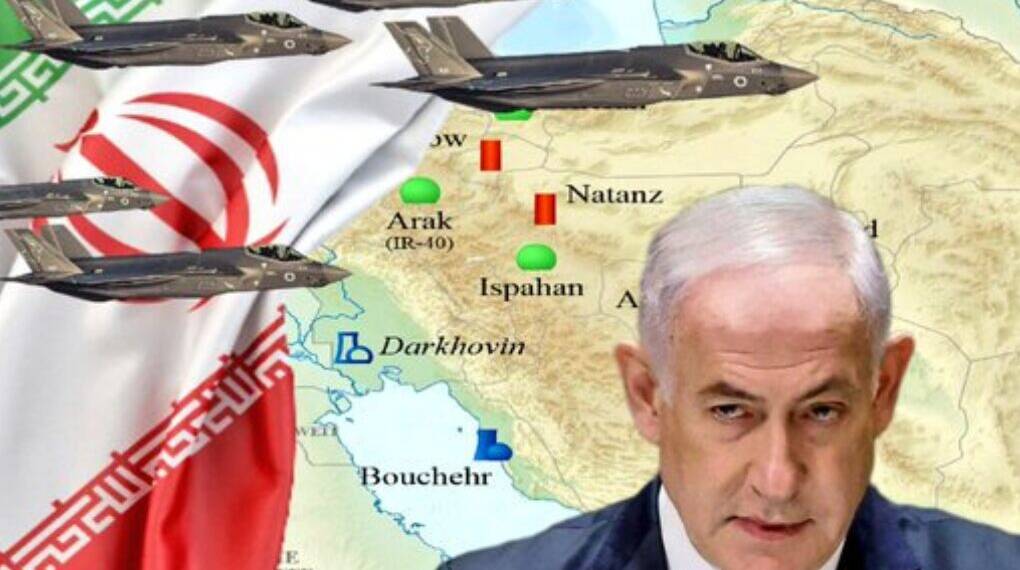Tensions in the Middle East have reached a boiling point as Israel finalizes preparations for a potential military strike on Iran’s nuclear facilities, with the operation reportedly hinging on the outcome of U.S.-Iran nuclear negotiations led by President Donald Trump. Hebrew media, including Channel 12, reported that Israel’s military is fully prepared, with munitions transfers and operational planning in their final stages. Meanwhile, Iran’s Supreme National Security Council issued a stark warning, threatening to target Israel’s “secret nuclear sites, key military assets, and economic infrastructure” if attacked. As diplomatic efforts falter, Trump’s recent statements suggest the talks are on the brink of collapse, raising fears of a broader regional conflict.
Israel’s Strike Preparations Intensify
According to Hebrew media, Israel’s military is poised to act swiftly if Trump declares the ongoing nuclear negotiations with Iran a failure. Channel 12 reported that the Israeli Defense Forces (IDF) have completed critical preparations, including moving air munitions and conducting operational drills. Senior Israeli officials told Ynet that a strike is “both possible and necessary” to prevent Iran from acquiring nuclear weapons, citing Iran’s refusal to fully dismantle its nuclear program.
Israeli Prime Minister Benjamin Netanyahu has long advocated for military action, arguing that Iran’s nuclear ambitions pose an existential threat to Israel. In recent weeks, Netanyahu has clashed with Trump, who has prioritized diplomacy over military action. The New York Times reported that Israel had planned to strike Iranian nuclear sites as early as May but was dissuaded by Trump, who sought to give negotiations a chance. However, with talks stalling, Israel’s patience appears to be wearing thin.
Iran’s Defiant Response and Counter-Proposal
Iran’s Supreme National Security Council issued an unprecedented warning on Tuesday, vowing to retaliate against any Israeli attack by targeting Israel’s alleged nuclear sites, military bases, and economic infrastructure. “The ‘target bank’ of Israel is now on the table of Iran’s armed forces,” the council stated, signaling a readiness to escalate. This marks a significant escalation in rhetoric, as Iran has rarely threatened Israel’s unacknowledged nuclear arsenal directly.
In a bold diplomatic move, Iran submitted a counter-proposal to the U.S., reported by The New York Times, offering to cap uranium enrichment at 3.67% for civilian purposes but only if Israel dismantles its entire nuclear arsenal and commits to a nuclear-free Middle East. This demand is a non-starter for Israel, which neither confirms nor denies its nuclear capabilities but is widely believed to possess nuclear weapons. Iran’s insistence on retaining enrichment capabilities has been a major sticking point in the negotiations, with Trump and Israeli officials demanding a complete halt to enrichment.
Trump’s Warning and the Diplomatic Deadlock
Following a phone call with Netanyahu, President Trump expressed frustration with Iran’s stance, stating, “Iran refuses to give up uranium enrichment. They want to continue enriching, but that’s not acceptable. We want the exact opposite.” He warned that the failure of the negotiations “could lead to very dangerous consequences,” hinting at potential military action. Trump’s comments align with his earlier threats to bomb Iran’s nuclear facilities if diplomacy fails, though he has emphasized a preference for a diplomatic solution.
The negotiations, mediated by Oman, have seen five rounds of talks, with the latest in Rome. The U.S. has proposed a deal that would restrict Iran’s enrichment while offering sanctions relief, but Iran’s rejection of a complete halt to enrichment has created a deadlock. Axios reported that a recent U.S. proposal allowed limited enrichment at 3.67%, a concession that sparked concern in Israel, though Trump has since reiterated his demand for “no enrichment.”
Saudi Arabia has also weighed in, with Defense Minister Prince Khalid bin Salman warning Iran in April to take Trump’s offer seriously to avoid war with Israel. This message, delivered in Tehran, underscored regional fears of instability if the talks collapse.
A Region on Edge
The prospect of an Israeli strike has raised alarms about a wider regional conflict. U.S. intelligence estimates that Israel could execute a strike within seven hours of Netanyahu’s order, leaving little time for Washington to intervene. Such an attack could disrupt the U.S.-Iran talks and provoke Iranian retaliation, potentially targeting U.S. assets in the region. Iran’s weakened position, following Israel’s dismantling of Hezbollah and Hamas and the fall of Syria’s Assad regime, has made it more vulnerable but also more defiant.
Posts on X reflect the heightened tension, with some claiming Israel is willing to accept limited Iranian enrichment temporarily, though Israeli officials have not confirmed this. Others speculate that an attack could coincide with the Jewish holiday of Shavuot, starting Sunday, though such claims remain unverified.
The Path Forward
The coming days will be critical as Trump awaits Iran’s response to the latest U.S. proposal. Israeli officials have reassured the White House that no strike will occur without Trump’s signal that talks have failed, but Netanyahu’s skepticism about a deal suggests military action remains a real possibility.
As both sides dig in, the risk of miscalculation grows. A diplomatic breakthrough could avert catastrophe, but with Iran’s provocative counter-proposal and Israel’s advanced preparations, the Middle East stands at a dangerous crossroads. The world watches as Trump’s next move could determine whether the region descends into war or finds a fragile path to peace.








